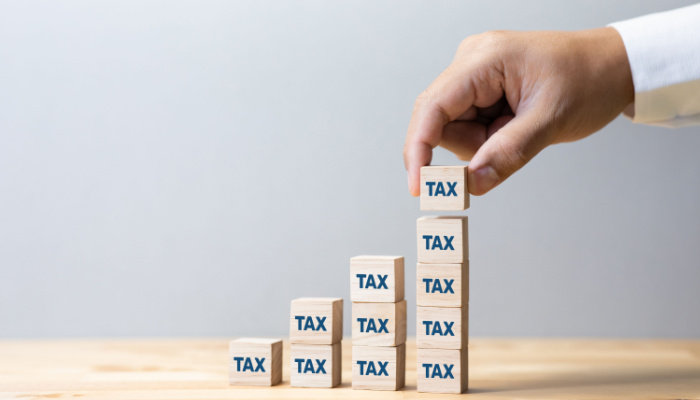On 3rd August 2023, the Bank of England increased the base interest rate from 5% to 5.25%, which also triggered an increase in HMRC interest rates for late tax payments and repayments. This rate will apply until the next review in November.
Increased bank interest rates mean increased tax revenue for the government, as more taxpayers will end up paying Income Tax on their savings because of the higher interest. Similarly, increased mortgage rates are driving up Capital Gains Tax takings.
What is the Income Tax impact of savings?
Currently, the personal savings allowance for annual interest earned on savings is £1,000 for basic rate taxpayers, which drops to £500 for higher rate taxpayers. There is no exemption for savings interest earned by additional rate taxpayers.
With many financial institutions offering up to 5–6%
annual interest rates for their savings and investment accounts, it would be easy for a higher rate taxpayer with savings of £10,000 or more to exceed their allowance and incur an unexpected tax bill.
This could mean that up to a million more people will end up paying tax on their savings interest income for 2023–2024 than the previous tax year.
If you could be at risk of paying more tax due to interest rate increases pushing up your savings income, there are a few things you could do to try and minimise your tax liabilities. For example, you could invest up to £20,000 a year in an ISA.
Alternatively, you could invest in premium bonds, though these do not pay fixed interest. You could win monthly tax-free prizes on these, but must be prepared to make little to no return, as this is always a risk with this type of bond agreement.
Why is Capital Gains Tax revenue increasing?
A recent rise in Capital Gains Tax (CGT) receipts has at least partly come from a surge of buy-to-let landlords deciding to sell up, pushed by uncertainty over the future of CGT.
Buy-to-let properties were a good choice when property prices were rising, mortgage costs were low, and cash savings accounts didn’t offer as much of a return. Now, these factors have reversed, with landlords preferring to try their luck by investing funds elsewhere.
Landlords who are selling up should take steps to reduce their CGT bills, such as:
- Claiming any qualifying expenditure
- Disposing of any investments standing at a loss
- Moving property into joint ownership with a spouse
These measures can alleviate some of the more punishing aspects of CGT charges.
Get tax advice from GBAC
It’s important to keep track of your savings income in consideration of your tax liabilities – if you owe tax on savings interest, this must be paid through a Self-Assessment
submission or deducted from your income through a PAYE tax code adjustment.
You can find more information about tax on savings interest on the government website. If you’re still unsure of whether you owe such tax or not and don’t want to wait to receive a letter from HMRC, you can always contact gbac for guidance.
Our team of accountants in Barnsley includes tax consultants
who can help you organise your financial accounts and provide professional tax advice.
To find out how gbac can help you reduce your tax liabilities while remaining fully compliant with HMRC, get in touch by calling 01226 298 298 or emailing info@gbac.co.uk.
